An Interview with Bill Clancy:
One of the Fast Rising Stars in the Ranks of Professional Boxing Referees
By Barry Lindenman
[email protected]
To say that Bill Clancy has paid his dues in professional boxing would be an understatement. A veteran referee of over 2,500 professional boxing matches during his 18 year career, Bill Clancy is one of the rising star referees in the world of professional boxing. If you’ve ever seen him operate in the ring, you’ll know what I mean. His take charge command and thorough knowledge of the rules make it clear to both the fighters in the ring as well as the spectators watching it, just who’s boss. The New York native and long time North Carolina resident was kind enough recently to take time from his busy schedule to share his thoughts about among other things, how he got his start, what its like to be a professional referee and who he likes to see in the ring.
BL: Could you briefly explain how you first got interested in boxing?
BC: I’ve been a fan of boxing ever since I was a little kid. My grandfather on my mother’s side used to box in the merchant marines. In fact he actually fought an exhibition fight with one of the old, former heavyweight champions. I want to say it was Max Baer or someone else like that of that era. I’m still trying to research the records about this with some boxing historians but so far I’ve not been able to confirm it exactly. So, hearing of that as a little kid sort of sparked my initial interest in boxing. As far back as I can remember though, boxing has always intrigued me. I used to watch it on TV every time there was a boxing match on. Billy Costello, the former WBC Super Lightweight champion, and I grew up together in the same town in upstate New York. I eventually ended up moving down to North Carolina during high school and messed around a little with my buddies putting on the gloves, etc. Anyway, as Billy progressed through the ranks, I would go back up to New York to watch him fight. After he won the title from Bruce Curry in 1984, Billy came down to visit in North Carolina. The next thing I know, I’m helping Billy train for some of his title defenses. Billy and I have been close friends ever since. I ultimately got an opportunity to start officiating through a guy named Tom Marino. He was putting on a card but had no officials and he knew that I was really into boxing. This was before we had a boxing commission here in North Carolina so I helped him out by refereeing and judging some of the fights. That’s what got me my first break into refereeing. My name eventually got out there whenever they needed some officials for a fight. The next thing you know, I’m getting calls left and right. It really took off from there. I joined the North American Boxing Federation in 1994 in an effort to get my name more recognized by a sanctioning body. After doing well with the NABF, I eventually got a call from the WBC about doing one of their title fights in Tennessee. I started doing a lot of work in both Tennessee and South Carolina in addition to the fights I was doing here and eventually became regarded as one of the top referees in those states. Then in 1997, the folks in Tennessee called me again about a card featuring five world title fights that Don King was putting together. I was asked to help officiate the undercard that night. That’s where Don King first got to see me work so that was another big break for me. It’s sort of just taken off from there and I’ve been very lucky so far.
BL: What was the most recent world title fight that you’ve officiated in?
BC: On the undercard of Lennox Lewis – Mike Tyson, I did the IBF Junior Featherweight World Title bout with Manny Pacquiao defending his title against Jorge Julio. I ended up having to stop that fight in the 2nd round because Pacquiao just destroyed him.
BL: Speaking of the Lewis – Tyson fight, you had originally been considered as one of the officials for that fight. What happened?
BC: My selection as the referee got leaked to the press prematurely and Wally Matthews from The New York Post called me about doing an interview. The Tennessee commission advised me to just say that I was being considered as the referee and that it wasn’t a done deal yet. He ended up writing some really nasty stuff. He made a mockery of my selection as the referee saying something to the effect that “in this fishbowl of an event (Lewis-Tyson fight), Tennessee was putting a guppy in to ref the fight.” He said I was in no way qualified. He really ripped me good. In order to avoid controversy, I pulled my name out of the running. But if the truth be known, I was actually more qualified than Eddie Cotton who ultimately was chosen to ref the fight. Cotton has had more title fights than me, that’s true. I don’t think you necessarily should be judged on how many world title fights you’ve done. I think you should look at the overall experience level. I’m in my 18th year as a ref. Cotton’s in his 17th year. He got his start refereeing in the prison system. I started on the toughman circuit. I would dare say that I’ve encountered more problems on the toughman circuit than he had in the prison system. I mean I didn’t have armed guards standing around to protect me.
BL: Do you have any role models when it comes to being a referee?
BC: I do actually. My true role model is Mills Lane. I feel very fortunate to have actually taken a couple of seminars that he taught. Mills Lane is 5’7” and 145 lbs. but he always had ultimate control in the ring, no matter how big the fighters were. It’s not how big you are as a ref. It’s about how you set the tone of the fight in the dressing room when you give the instructions well before the fight starts. You have to take control from that point on and then follow through by executing your duties in the ring. Other than Mills though, I also have the utmost respect for Joe Cortez. He is an absolute consummate professional.
BL: We all know that Mills Lane, other than being a boxing referee was also a district court judge and HBO’s official “unofficial” judge Harold Lederman is a licensed pharmacist. Other than officiating professional boxing events, how do you make a living?
BC: I work full-time for IBM. October 30th will be my 25th anniversary with the company.
BL: What’s your opinion about Don King? Do you think he’s been good or bad for boxing?
BC: I personally have nothing against Don King. I’ve done some events for him a couple of times. He’s always acted very professional to me. The government’s been trying to get him for so long now but they still haven’t nailed him with anything. That tells me something right there. How can the fighters complain either? Before they hook up with Don King, they never see the kind of money that they make with Don King. He has made well over a hundred fighters millionaires. Larry Holmes once told me, “how can I complain about Don King?” Yeah, he might have robbed me of $3 million but he made me $20 million!” Fighters make more money with Don King than they do with any other promoter. If it wasn’t for him, boxing wouldn’t be at the level that it is so I have no bones with Don King.
BL: What’s your opinion about women’s boxing? Do you think it’s just a sideshow attraction to try and sell tickets or do you think they should be given a legitimate chance to fight?
BC: I definitely think that they should be given the chance to fight. Some of them are very accomplished boxers not only from a skills perspective but in terms of the having the heart and desire as well. I have the utmost respect for women fighters.
BL: What’s the most difficult aspect of refereeing a professional boxing match?
BC: The politics that goes on outside the ring. I do get a little nervous before a fight because I want to make sure that I do a good job. I want to make sure that my movements are fluid and I try to insure that when the fight starts that I’m not the person that the people are looking at. I’m not the show. It’s the fighters. But once I get in the ring, I’m in the most relaxed atmosphere that that I could possibly be in. So the hardest thing for me is the politics. Had it not been for the politics, I would have been the referee for the Lewis – Tyson fight.
BL: Who are some of your favorite fighters to watch fight?
BC: There are so many. It’s hard to just single out a few. Of the current crop of fighters, I love to watch guys like Bernard Hopkins, Oscar De La Hoya, Felix Trinidad and Manny Pacquiao. I used to love to watch Sugar Ray Leonard. Marvin Hagler was probably one of my most favorite boxers of all time.
BL: Last question Bill. Mills Lane was famous for ending his pre-fight instructions by saying “let’s get it on” to the fighters. Joe Cortez says “I’m fair but I’m firm.” Do you have a signature phrase or slogan that you say to the fighters right before the bell rings?
BC: I really don’t have a “saying” but I do say at the end of final in the ring instructions, “let’s go to work”. I never really thought about it until you asked but I do say “let’s go to work.”
Barry Lindenman is a free lance writer who can be reached at: [email protected]


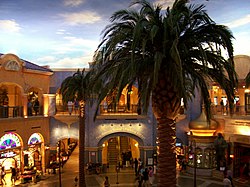



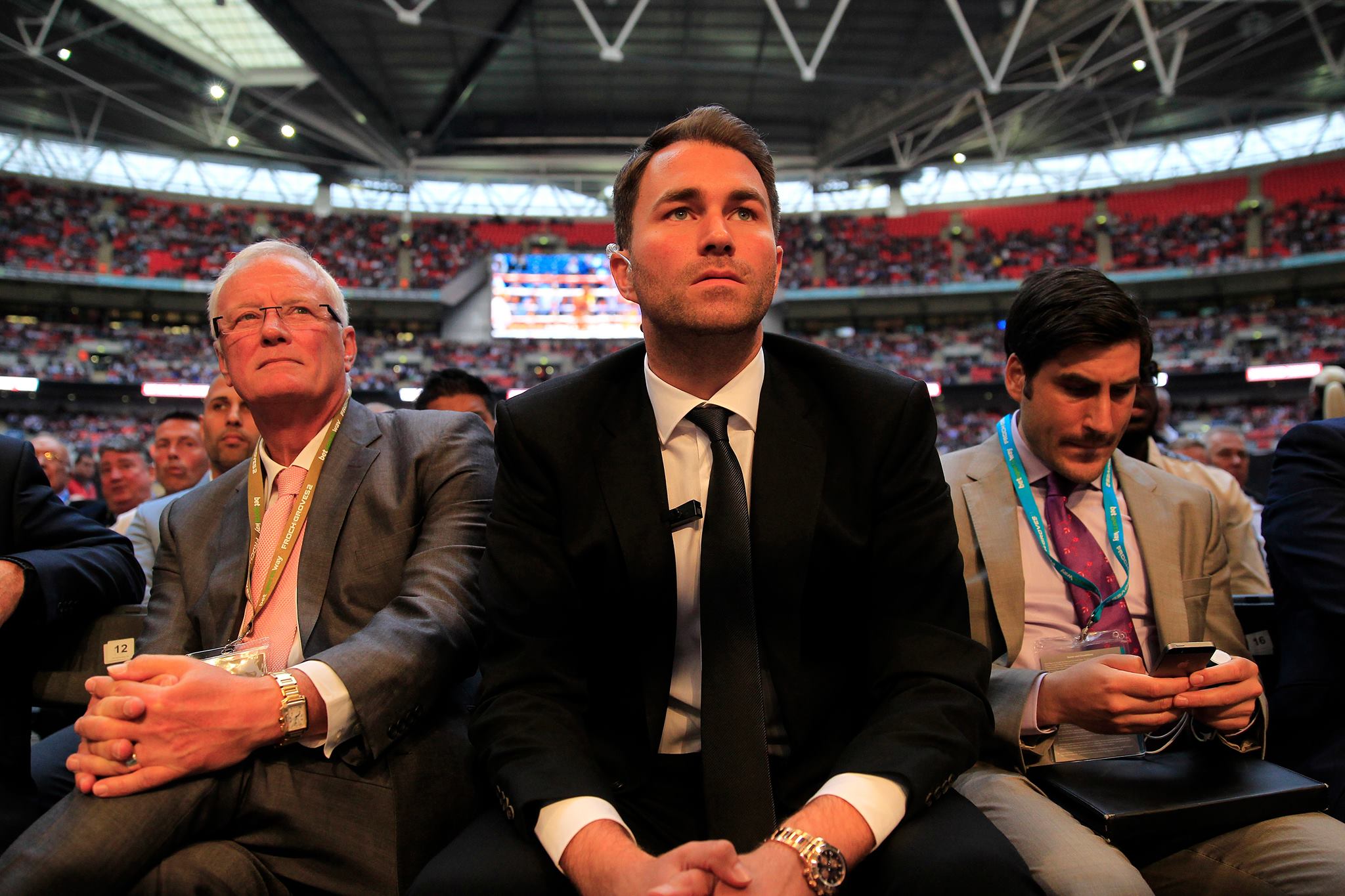
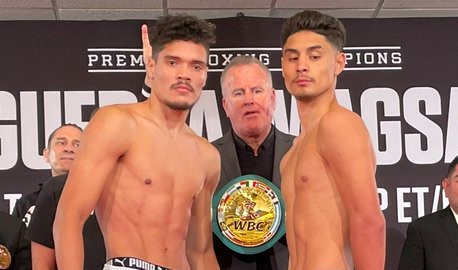
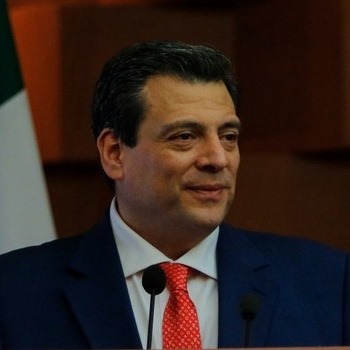







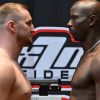
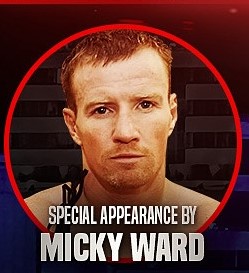

cambogiafruit.com/
08/08/2013 at 10:06 am
Despair-hopelessness-loneliness: Do these infidelity statistics 60% of U.
LarryFex
06/25/2024 at 1:26 am
pin up azerbaijan: pin up onlayn kazino – pin-up 141
Richardled
06/26/2024 at 7:51 am
mexican pharmaceuticals online [url=https://northern-doctors.org/#]mexican pharmacy northern doctors[/url] mexico drug stores pharmacies
Williamfrumn
06/26/2024 at 7:55 am
mexico drug stores pharmacies: northern doctors pharmacy – buying prescription drugs in mexico online
Williamfrumn
06/26/2024 at 1:03 pm
buying prescription drugs in mexico: mexican pharmacy northern doctors – mexican pharmacy
JeffreyMok
06/26/2024 at 4:25 pm
http://northern-doctors.org/# mexican drugstore online
JeffreyMok
06/26/2024 at 7:14 pm
https://northern-doctors.org/# best online pharmacies in mexico
Williamfrumn
06/26/2024 at 9:06 pm
buying prescription drugs in mexico: mexican pharmacy – pharmacies in mexico that ship to usa
Richardled
06/26/2024 at 9:50 pm
mexican online pharmacies prescription drugs [url=https://northern-doctors.org/#]Mexico pharmacy that ship to usa[/url] medicine in mexico pharmacies
JeffreyMok
06/27/2024 at 12:52 am
http://northern-doctors.org/# mexico pharmacy
Williamfrumn
06/27/2024 at 12:53 am
medication from mexico pharmacy: mexican northern doctors – mexican pharmacy
Williamfrumn
06/27/2024 at 2:45 am
buying from online mexican pharmacy: mexican pharmacy online – п»їbest mexican online pharmacies
JeffreyMok
06/27/2024 at 3:59 am
http://northern-doctors.org/# buying prescription drugs in mexico
Williamfrumn
06/27/2024 at 4:37 am
best online pharmacies in mexico: mexican pharmacy – mexico drug stores pharmacies
JeffreyMok
06/27/2024 at 6:55 am
https://northern-doctors.org/# mexican pharmaceuticals online
JeffreyMok
06/27/2024 at 10:06 am
https://northern-doctors.org/# reputable mexican pharmacies online
Richardled
06/27/2024 at 4:15 pm
buying prescription drugs in mexico online [url=https://northern-doctors.org/#]mexican pharmacy northern doctors[/url] mexico drug stores pharmacies
Williamfrumn
06/27/2024 at 7:04 pm
mexico pharmacy: mexican pharmacy northern doctors – buying from online mexican pharmacy
Williamfrumn
06/28/2024 at 12:09 am
mexican pharmaceuticals online: mexican northern doctors – mexican pharmaceuticals online
JeffreyMok
06/28/2024 at 3:46 am
https://northern-doctors.org/# best online pharmacies in mexico
JeffreyMok
06/28/2024 at 6:22 am
https://northern-doctors.org/# п»їbest mexican online pharmacies
Williamfrumn
06/28/2024 at 8:08 am
mexico drug stores pharmacies: reputable mexican pharmacies online – mexican rx online
JeffreyMok
06/28/2024 at 9:02 am
http://northern-doctors.org/# п»їbest mexican online pharmacies
Richardled
06/28/2024 at 9:57 am
п»їbest mexican online pharmacies [url=https://northern-doctors.org/#]northern doctors pharmacy[/url] medication from mexico pharmacy
Richardled
06/28/2024 at 7:02 pm
mexico pharmacies prescription drugs [url=https://northern-doctors.org/#]Mexico pharmacy that ship to usa[/url] mexican border pharmacies shipping to usa
JeffreyMok
06/29/2024 at 1:04 am
https://northern-doctors.org/# mexico drug stores pharmacies
DonaldBiono
06/29/2024 at 12:05 pm
purple pharmacy mexico price list
http://cmqpharma.com/# mexican border pharmacies shipping to usa
reputable mexican pharmacies online
Ronnienop
06/29/2024 at 1:10 pm
purple pharmacy mexico price list [url=https://cmqpharma.com/#]mexican online pharmacy[/url] mexican border pharmacies shipping to usa
Ronnienop
06/29/2024 at 7:14 pm
mexico drug stores pharmacies [url=https://cmqpharma.com/#]mexico drug stores pharmacies[/url] medicine in mexico pharmacies
Ronnienop
06/30/2024 at 3:40 am
best online pharmacies in mexico [url=https://cmqpharma.com/#]mexican pharmacy online[/url] mexican pharmacy
Eddie Finto
07/08/2024 at 1:24 pm
Wow, marvelous blog structure! How lengthy have you been running a blog for? you made running a blog look easy The full glance of your site is excellent, as neatly as the content material!
RodolfoRal
07/09/2024 at 1:18 am
mexico drug stores pharmacies
https://cmqpharma.online/# mexico drug stores pharmacies
mexico pharmacies prescription drugs
Davidtoows
07/19/2024 at 9:48 pm
reliable canadian pharmacy: legal to buy prescription drugs from canada – canadian drug stores
EdwardLoobe
07/20/2024 at 1:46 am
https://canadapharmast.online/# online canadian pharmacy
Davidtoows
07/20/2024 at 1:56 am
canadian mail order pharmacy: canadian pharmacy 365 – canadian pharmacy world reviews
EdwardLoobe
07/20/2024 at 2:27 am
https://canadapharmast.online/# reputable canadian online pharmacy
Davidtoows
07/20/2024 at 3:02 am
reputable indian online pharmacy: reputable indian pharmacies – india online pharmacy
Michaelmoolo
07/20/2024 at 5:39 am
reputable indian online pharmacy: best online pharmacy india – indian pharmacy
CharlesRor
07/20/2024 at 12:45 pm
pharmacy website india [url=https://indiapharmast.com/#]top 10 pharmacies in india[/url] reputable indian pharmacies
Davidtoows
07/20/2024 at 1:14 pm
canadian drugs: canadian drugs online – global pharmacy canada
EdwardLoobe
07/20/2024 at 2:50 pm
https://indiapharmast.com/# best online pharmacy india
Michaelmoolo
07/20/2024 at 3:14 pm
cheapest online pharmacy india: indian pharmacy paypal – top 10 pharmacies in india
EdwardLoobe
07/20/2024 at 3:34 pm
http://indiapharmast.com/# reputable indian online pharmacy
memek becek
07/20/2024 at 11:16 pm
Hello to every body, it’s my first pay a quick visit of this webpage; this website consists of remarkable and really good stuff
in favor of readers.
Michaelmoolo
07/21/2024 at 12:03 am
canadadrugpharmacy com: canada online pharmacy – canada pharmacy world
EdwardLoobe
07/21/2024 at 1:57 am
http://foruspharma.com/# mexico drug stores pharmacies
EdwardLoobe
07/21/2024 at 3:09 am
http://canadapharmast.com/# safe canadian pharmacy
Michaelmoolo
07/21/2024 at 3:41 am
reputable mexican pharmacies online: reputable mexican pharmacies online – mexico drug stores pharmacies
Davidtoows
07/21/2024 at 4:59 am
Online medicine home delivery: indian pharmacies safe – buy prescription drugs from india
Michaelmoolo
07/21/2024 at 9:36 am
reliable canadian online pharmacy: the canadian pharmacy – canadian pharmacy 24
Jamesjam
07/21/2024 at 4:57 pm
where can i get cheap clomid for sale: how to get cheap clomid price – where to get generic clomid price
Jamesjam
07/21/2024 at 5:55 pm
get cheap clomid no prescription: where can i get clomid no prescription – can i buy generic clomid pills
Myronnepay
07/21/2024 at 6:10 pm
https://doxycyclinedelivery.pro/# doxycycline 100 mg tablet
cipro ciprofloxacin [url=http://ciprodelivery.pro/#]ciprofloxacin order online[/url] buy cipro cheap
Myronnepay
07/21/2024 at 7:45 pm
https://doxycyclinedelivery.pro/# buy doxycycline 500mg
paxlovid for sale [url=https://paxloviddelivery.pro/#]paxlovid generic[/url] paxlovid pill
Myronnepay
07/22/2024 at 3:21 am
https://clomiddelivery.pro/# where can i buy clomid without prescription
paxlovid price [url=http://paxloviddelivery.pro/#]paxlovid buy[/url] paxlovid india
Myronnepay
07/22/2024 at 4:58 am
http://doxycyclinedelivery.pro/# doxycycline 50mg
paxlovid india [url=https://paxloviddelivery.pro/#]paxlovid buy[/url] paxlovid buy
Jamesjam
07/22/2024 at 5:38 am
buy clomid pills: can i purchase clomid tablets – can you buy cheap clomid without insurance
Jamesjam
07/22/2024 at 6:37 am
doxycycline 3142: doxycycline brand name in india – buy doxycycline mexico
Myronnepay
07/22/2024 at 12:48 pm
https://amoxildelivery.pro/# amoxicillin discount
paxlovid price [url=https://paxloviddelivery.pro/#]Paxlovid buy online[/url] paxlovid pharmacy
Myronnepay
07/22/2024 at 2:27 pm
https://amoxildelivery.pro/# amoxicillin online no prescription
Paxlovid buy online [url=http://paxloviddelivery.pro/#]paxlovid india[/url] paxlovid cost without insurance
Jamesjam
07/22/2024 at 6:13 pm
ciprofloxacin mail online: cipro 500mg best prices – ciprofloxacin
Jamesjam
07/22/2024 at 7:10 pm
where buy generic clomid without a prescription: order generic clomid tablets – where to get generic clomid without prescription
Myronnepay
07/22/2024 at 11:52 pm
http://ciprodelivery.pro/# ciprofloxacin over the counter
paxlovid for sale [url=https://paxloviddelivery.pro/#]Paxlovid over the counter[/url] paxlovid pharmacy
Jamesjam
07/23/2024 at 6:58 am
paxlovid for sale: п»їpaxlovid – paxlovid price
Myronnepay
07/23/2024 at 7:32 am
https://clomiddelivery.pro/# can i purchase generic clomid without rx
where can i get generic clomid now [url=http://clomiddelivery.pro/#]where buy clomid price[/url] clomid without insurance
Jamesjam
07/23/2024 at 7:57 am
buy cipro online usa: buy cipro online usa – ciprofloxacin mail online
Myronnepay
07/23/2024 at 9:11 am
http://paxloviddelivery.pro/# Paxlovid buy online
amoxicillin 500 mg brand name [url=https://amoxildelivery.pro/#]amoxicillin medicine over the counter[/url] amoxicillin buy canada
Myronnepay
07/23/2024 at 6:58 pm
https://ciprodelivery.pro/# buy generic ciprofloxacin
can i order cheap clomid pills [url=http://clomiddelivery.pro/#]cheap clomid online[/url] can you get cheap clomid without rx
Jamesjam
07/23/2024 at 7:34 pm
Paxlovid buy online: paxlovid pharmacy – Paxlovid over the counter
Jamesjam
07/23/2024 at 8:30 pm
ciprofloxacin 500mg buy online: ciprofloxacin 500mg buy online – cipro ciprofloxacin
bokep terbaru
07/23/2024 at 9:25 pm
What’s up to all, the contents existing at this website are truly amazing for people knowledge, well, keep up the nice work fellows.
Myronnepay
07/24/2024 at 2:44 am
https://ciprodelivery.pro/# ciprofloxacin
ciprofloxacin mail online [url=http://ciprodelivery.pro/#]antibiotics cipro[/url] where can i buy cipro online
Myronnepay
07/24/2024 at 4:24 am
http://doxycyclinedelivery.pro/# doxycycline cheap australia
can i purchase generic clomid pill [url=https://clomiddelivery.pro/#]can i purchase generic clomid without rx[/url] where buy cheap clomid without rx
Jamesjam
07/24/2024 at 8:25 am
where to buy generic clomid for sale: how to buy clomid price – where buy clomid without a prescription
Jamesjam
07/24/2024 at 9:23 am
buy doxycycline 100mg: can you buy doxycycline over the counter – doxycycline 100mg cap price
Jamesjam
07/24/2024 at 8:59 pm
п»їpaxlovid: paxlovid buy – paxlovid cost without insurance
Jamesjam
07/24/2024 at 9:58 pm
doxycycline usa: buy doxycycline uk – doxycycline tab india